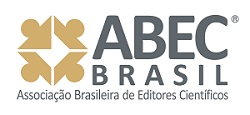Irrigation management based on evapotranspiration accumulation of the melon crop: a Bayesian approach
DOI:
https://doi.org/10.5039/agraria.v15i2a7181Keywords:
Cucumis melo, micro irrigation, regression models, water consumptionAbstract
This study aimed to evaluate different accumulation values of the melon crop evapotranspiration (ETc) as a reference to start the irrigation. The study was conducted in a protected environment and the Bayesian methodology was used to analyze the data. Treatments consisted of four ETc accumulation values (3, 6, 9 and 15 mm) for starting the irrigation, in addition to eight plots of control treatment, corresponding to the daily irrigation. Yield, total dry matter weight, leaf area, total chlorophyll, carotenoids and relative water content were all evaluated. Except for the relative water content, the a posteriori coefficient estimates of the regression models were all significant for the other variables, by fitting quadratic models to explain the ETc accumulation effect. In daily irrigation, total dry weight, leaf area, total chlorophyll and relative water content decreased while the carotenoids increased, compared to the accumulated irrigation. It is concluded that ETc accumulation changes production, growth and physiology of the melon and it is more beneficial than the daily irrigation. The Bayesian approach was adequate for explaining the relations between the water depths and the response variables of the melon.
Downloads
Downloads
Published
How to Cite
Issue
Section
License

This work is licensed under a Creative Commons Attribution-NonCommercial 3.0 Unported License.


